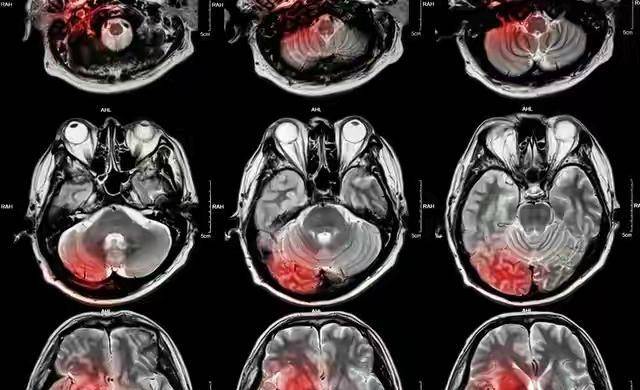Brain infarction has become a major killer of the health of middle-aged and elderly individuals, especially those with chronic diseases such as high blood lipids and hypertension, who are more prone to brain infarction.
According to data from the World Health Organization, compared with other countries, the incidence of ischemic stroke in China is 1.36 times the world average, and the incidence and mortality rates of hemorrhagic stroke are twice the world average. China currently bears the largest burden of stroke in the world and has become a major public health challenge.
Recently, a 59-year-old couple both were hospitalized for brain infarction, fortunately, timely medical care saved their lives. After careful questioning by doctors, it was discovered that the couple often ate two types of fruits, unknowingly accelerating blood vessel blockage, leading to brain infarction.
Many people know that consuming fatty foods can accelerate blood vessel blockage, but they may not be aware that excessive intake of certain common fruits can also harm blood vessels. This couple enjoyed eating durian and avocado, believing they were nutritious, but unknowingly causing blood vessel aging and blockage.
1. Durian
Durian is a high-calorie, high-fat fruit. While it tastes sweet and fragrant, consuming too much can lead to fat accumulation in the body, increase blood viscosity, and harm vascular health. Moreover, durian contains a large amount of sugar, excessive intake can elevate blood sugar, accelerating vascular aging and disease.
2. Avocado
Avocado is also a fruit rich in fats, with a fat content as high as 30%. Prolonged excessive intake of avocados can increase fat content in the body, affecting lipid levels and increasing the risk of blood vessel blockage. Furthermore, the fats in avocados are mostly unhealthy saturated fats; excessive intake can raise cholesterol levels, harming vascular health.
Recognizing These Signals in Your Body Could Be Early Warnings of Brain Infarction:
Brain infarction refers to a disorder of blood circulation in the brain, leading to ischemia and hypoxia of brain tissues resulting in necrosis. It is a serious condition with common symptoms including headaches, dizziness, vomiting, numbness in the limbs, blurred vision, and more. However, some early signs might not be prominent. Here are some potential bodily signals indicating an impending brain infarction:
Facial paralysis: Facial muscles experience paralysis or twitching, especially during smiling or whistling.
Headaches: Sudden severe headaches or long-lasting ones, possibly due to cerebral vasospasm or blockage.
Changes in vision: Sudden blurred vision, diplopia, blackout, which could be a result of optic nerve compression or damage.
Speech impediments: Unclear speech, difficulty in pronunciation, reduced comprehension skills, indicating an impact on the brain’s language center.
Limb numbness: Limb numbness, weakness, tingling sensations, possibly due to nerve impact in the brain.
Poor balance: Feeling of imbalance, unsteady walk, prone to falling, possibly due to damage to the cerebellum.
If you experience these symptoms, seek medical attention promptly, informing the doctor of your symptoms and medical history. Additionally, maintaining healthy lifestyle habits such as controlling blood pressure, blood sugar, and lipid levels can help prevent brain infarction.
Can Brain Infarction be Cured?
Brain infarction can be completely cured depending on the severity and timeliness of treatment. Details are as follows:
1. Mild Brain Infarction
If it’s a mild case, such as lacunar infarction, where the patient is clear-minded without obvious paralysis symptoms, timely treatments like venous thrombolysis, antiplatelet aggregation therapy, promoting blood circulation to remove blood stasis, acupuncture rehab, etc., can lead to complete recovery without significant sequelae.
2. Severe Brain Infarction
Severe cases like extensive brain infarction or brainstem infarction, where patients have significant paralysis symptoms, even consciousness disorders or coma, might not be completely curable despite timely treatment and could result in residual effects. Some severe cases might lead to residual conditions like hemiplegia, aphasia, but through active rehabilitation exercise, some patients can see a certain degree of recovery.
Four Essential Measures for Preventing Brain Infarction:
1. Control blood pressure
Hypertension is a major risk factor for brain infarction. The higher the blood pressure, the higher the risk of brain infarction. Therefore, regular monitoring is necessary, and prompt treatment should be sought if hypertension is detected. Consult a doctor if blood pressure remains high for appropriate treatment.
2. Control blood lipids
Abnormal blood lipids are another major risk factor for brain infarction. It can lead to arteriosclerosis, increasing the risk of brain infarction. Regular lipid examination is advised, and prompt treatment is essential upon detection of abnormal levels.
3. Control blood sugar
Diabetes is a risk factor for brain infarction. Poor blood sugar control in diabetic patients can lead to vascular lesions, increasing the risk of brain infarction. Therefore, diabetic patients should actively control blood sugar levels within the normal range.
4. Quit smoking and limit alcohol consumption
Smoking and alcohol consumption increase the risk of brain infarction. Smoking can cause arteriosclerosis, increasing the risk of brain infarction. Alcohol consumption can raise blood pressure, likewise increasing the risk. Therefore, quitting smoking and limiting alcohol consumption is crucial to avoid these risks.
In conclusion, to prevent brain infarction, these four measures must be adhered to. By controlling blood pressure, blood lipids, blood sugar levels, quitting smoking, limiting alcohol consumption, and maintaining good lifestyle habits such as balanced diet, moderate exercise, avoiding staying up late, can effectively reduce the risk of brain infarction.


